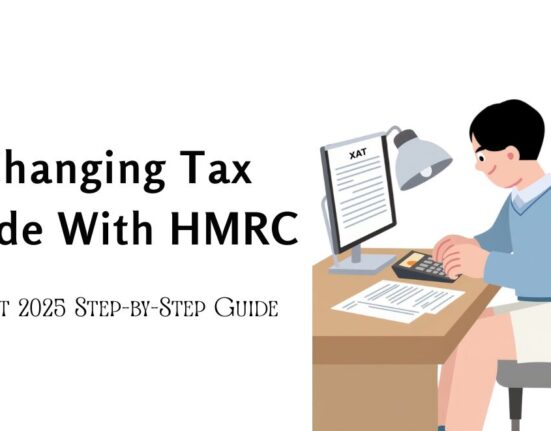Imagine this: a daughter inherits her late parents’ modest three-bedroom home in London. It’s not a mansion—just the family house bought decades ago when prices were low. Today, that property is worth over £800,000. Suddenly, she faces a bill for inheritance tax.
This is why inheritance tax strikes a nerve. For many families, it feels less like a “wealth tax for the rich” and more like a penalty on passing down a lifetime of hard work. Now, with the Labour Party in government, questions swirl: what will Labour do with inheritance tax? Will pensions be pulled into the net? Could family farms or businesses lose long-standing reliefs?
The debate isn’t just about numbers—it’s about homes, livelihoods, and generational security.
What Is Inheritance Tax (IHT) and Why Does It Matter?
Inheritance tax, or IHT, applies when someone dies and transfers their estate—including property, pensions, savings, and other assets—to their heirs.
- The standard threshold is £325,000. Anything above this may face a 40% tax rate.
- An additional residence nil-rate band can raise the allowance to £500,000 if passing down the family home to direct descendants.
- Transfers to a surviving spouse or civil partner are usually exempt.
It’s meant to target the wealthy, yet rising house prices and pensions mean more ordinary families are being drawn in each year. That’s why Labour’s inheritance tax policies are under such scrutiny.
Labour Inheritance Tax Plans Explained
Since entering government, Labour’s Chancellor Rachel Reeves has made clear that tax reform is on the table. In the Autumn Budget 2024, Labour signalled changes to inheritance tax thresholds, pension rules, and reliefs on family businesses.
Key proposals include:
- Pensions – Labour may tax unused pension pots, changing how families pass down retirement savings.
- Property – With house values high, Labour may keep thresholds frozen, which could push more estates into inheritance tax.
- Farms and Businesses – Labour may tighten Agricultural Property Relief and Business Property Relief, reducing exemptions for some family-run enterprises.
- Timeline – Labour plans to roll out reforms gradually, with full changes possibly taking effect by April 2027.
In Reeves’ words, inheritance tax must be “fair” and contribute to public finances—but critics argue this definition of fairness comes at the expense of working families.
The Debate: Fairness vs. Burden
Supporters of Labour’s approach argue that inheritance tax prevents wealth from concentrating in a few hands and provides funding for the NHS and schools. Labour frames it as part of its promise to support “working people.”
Opponents, however, see it differently. Farmers, small business owners, and families inheriting ordinary homes fear they’ll be taxed out of keeping assets built over generations. Headlines warn that “Labour’s inheritance tax reform threatens family-run businesses and farms.”
The divide is clear: Is inheritance tax a tool of fairness, or an unfair burden on families caught in the middle?
Inheritance Tax on Pensions – What Changes Under Labour?
One of the most discussed reforms concerns pensions.
Current Rules
- Defined contribution pensions can often be passed to heirs free of inheritance tax if the saver dies before age 75.
- Even after 75, pensions are usually taxed as income for the beneficiary, not as part of the estate.
Proposed Labour Changes
- Unused pension pots may become subject to inheritance tax, closing what Labour sees as a loophole.
- Larger estates with significant pension savings could face combined IHT and income tax charges, depending on circumstances.
For families, this means pensions are no longer just about retirement—they could also become a future tax liability for children and grandchildren.
Family Homes, Businesses, and Farms – The Real-World Impact
The Family Home
Rising house prices mean many middle-class families are “asset rich” but cash poor. Labour’s stance suggests thresholds may not rise, so more family homes could face tax.
Farms and Businesses
Agricultural Property Relief and Business Property Relief currently allow family farms and small businesses to pass down without huge tax bills. Labour is considering tightening these rules, arguing that some wealthy estates misuse them.
But critics warn:
- A farm inherited by a son or daughter may face a bill that forces the sale of land.
- A small family-owned shop could be dismantled just to cover taxes.
A Tale of Two Families
- Family A inherits a £1 million London townhouse. Without adjustments, they face a tax bill of around £200,000+.
- Family B inherits a generational farm worth £2 million. If relief is reduced, they may have to sell part of the land just to pay HMRC.
For both, inheritance tax isn’t an abstract debate—it’s the difference between keeping or losing the family legacy.
Planning Ahead: What Families Should Do Now
With reforms on the horizon, preparation is key:
- Update wills and trusts – ensure they reflect current law.
- Consider gifting – gifts made more than seven years before death can reduce liability.
- Use ISAs and allowances – some savings vehicles are outside IHT scope.
- Seek professional advice – solicitors and financial advisers can tailor strategies.
- Check calculators – HMRC and independent advisers provide tools to estimate future tax bills.
Even small steps today can save families from painful surprises tomorrow.
Looking Ahead – The Politics of Generational Wealth
Inheritance tax is more than a financial policy—it’s a statement of values. Labour argues it’s about fairness and funding services. Critics argue it risks dismantling generational wealth for ordinary families.
The real question is whether families will remember Labour’s inheritance tax reforms as a necessary adjustment for modern Britain or as a policy that forced too many to sell their homes, farms, and businesses.
FAQs
What will Labour do to inheritance tax?
Labour plans to review inheritance tax thresholds, bring unused pension pots into scope, and tighten reliefs for farms and family businesses. These reforms are designed to raise revenue and make the system “fairer,” according to Chancellor Rachel Reeves.
Will Labour increase inheritance tax?
Labour is unlikely to raise the 40% inheritance tax rate, but more estates will pay. By freezing the inheritance tax threshold and widening the assets included, many middle-class families could face larger tax bills on property and savings.
What will happen to pensions under Labour inheritance tax plans?
Unused pension pots may no longer pass tax-free. Under Labour’s proposals, the estate could tax pensions, so heirs would pay both inheritance tax and income tax when they inherit retirement savings.
Will family farms and businesses lose reliefs?
Labour may reduce Agricultural Property Relief (APR) and Business Property Relief (BPR), which currently shield many estates. Critics fear this could force families to sell farms or shops, but Labour assures that genuine working businesses will remain protected.
How much inheritance tax would I pay on £1 million?
A £1 million estate could generate an inheritance tax bill of around £270,000, depending on allowances such as the residence nil-rate band and transfers to a spouse. Careful estate planning, gifting, and trusts can lower the amount owed.
Closing Thoughts
The daughter inheriting her parents’ house, the farmer trying to keep the family land, the retiree passing on a pension—all face a new future under Labour’s inheritance tax policies.
For some, these changes may feel fair. For others, they may feel like punishment for success built over decades.
One thing is certain: inheritance tax is no longer just a policy—it’s a kitchen table conversation in homes across the UK. Families must stay informed, plan, and prepare for the shifting landscape that lies ahead.
Visit: Pure Magazine








